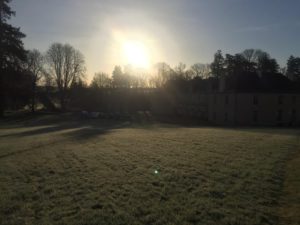with Sarah Bachelard & Michael Wood
It seems obvious that a contemplative response to polarisation and violence will seek to enable reconciliation and peace. We often say that, because meditation creates peace in our own hearts, it contributes to the making of peace in the world. But is it only a matter of our own practice? Or do we need to engage the call to be peace-makers in other ways, learning particular practices or skillful means that enable true reconciliation and lasting change?
What could be a contemplative contribution to peacemaking and reconciliation?
“The first thing to say about non-violence is that it is not the absence of conflict.
Non-violence is about how we can make through conflict and differences”
In this video, Sarah Bachelard speaks to Michael Wood, who facilitates dialogical and restorative justice processes, and is a leading educator in peace and non-violence. Watch the full video with Sarah Bachelard and Michael Wood here:
About Michael Wood
A leadership coach specialising in facilitation dialogical processes and is involved in the work of teaching non violence and peacemaking skills in students in schools, also an Anglican priest and a meditator.


